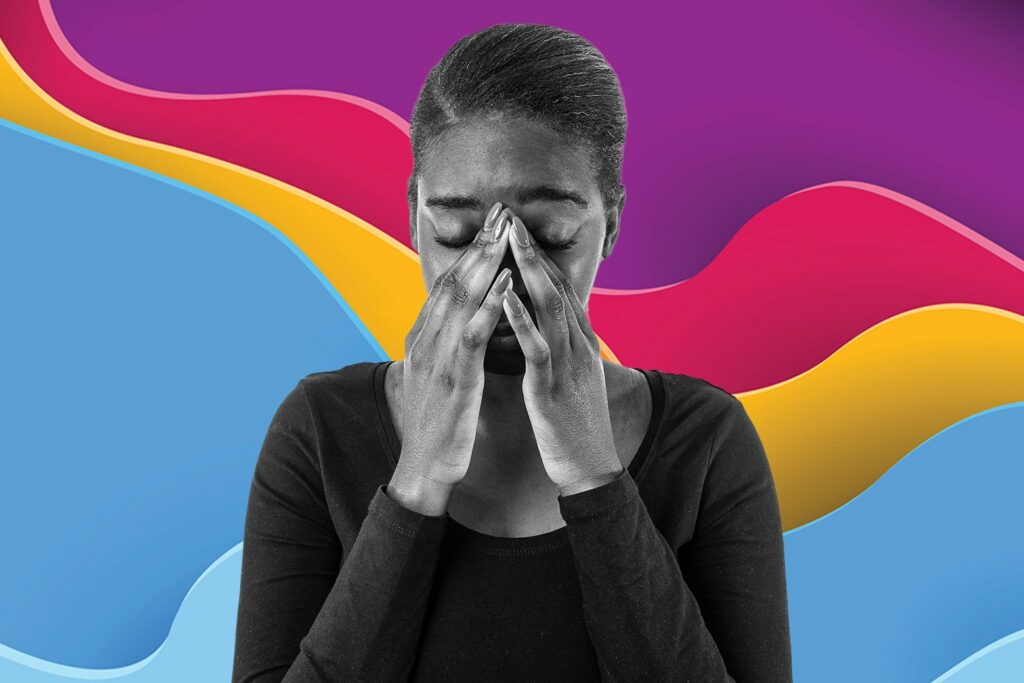Relationships
A good mea culpa can be magic.
Photo illustration by Slate. Photos by Getty Images Plus.
This is One Thing, a column with tips on how to live.
I always saw myself as a forgiving person who’d exonerate others—after they expressed regret. I even forgave the college roommate who slept with my boyfriend, once she explained they’d been on magic mushrooms at the time, offering remorse. Yet I rarely apologized well.
If something I did upset someone, I’d say, “Sorry if I hurt you,” or “I never realized that offended you,” or “I didn’t know you were so sensitive,” throwing out selfish, passive-aggressive apologies that made everything worse. Then an important mentor of 15 years screwed up and refused to admit his errors. I emailed him how distraught I was. When he responded, “I’m sorry for the imaginary crime you think I committed,” I wanted to commit a real crime.
His betrayal haunted me, inspiring my book The Forgiveness Tour: How to Find the Perfect Apology. I interviewed people who’d experienced wrongs never righted and asked doctors, therapists, and religious leaders: Can you forgive someone who won’t apologize?
A Hasidic colleague explained, “Jewish law requires you to ask heartfelt forgiveness three times. If the injured party won’t respond, the sinner’s forgiven, but the non-forgiver has to seek forgiveness for not forgiving.” A Muslim chaplain said, “Allah is merciful, but only after repentance.” An Episcopal reverend felt that Jesus’ “Father, forgive them, for they know not what they do” was all-forgiving, but a Presbyterian minister clarified that, in Christianity, if you don’t repent, “hell’s a place of eternal torment with no second chances.” After I told a Hindu-born psychiatrist about my mentor, he opined: “There’s something missing from your story,” and had me imagine a commuter enraged about a woman who’d stopped her SUV in the middle of the street to get something in the backseat. “The furious driver couldn’t see that her infant was choking.”
Six months after our falling-out, my mentor asked to meet. His wife had had surgery to remove a tumor that ended up being malignant. He’d lost a whole year, he confessed, apologizing profusely. “I hope our bad blood is finished.”
In moments, it was. “I’m so sorry to hear,” I heard myself saying.
Mesmerized by the magic of his mea culpa, I went on a forgiveness binge, fixing relationships that my own insensitivity had ruined. When my friend Isabelle sent me her memoir about surviving cancer, I’d been too busy. Now I texted, “I’m so sorry I wasn’t there for you when you needed me. Will you show me what you wrote?”
“Susie, I’d love to,” she replied, using my childhood nickname, cancelling out the bad juju.
Upset by something I’d published about his family, my brother ghosted me. I wrote his wife: “I’m sorry I fucked up. I never meant to hurt either of you. If I had it to do over, I would have kept my big mouth shut.” He put me back on his email list for Republican propaganda. I was in again.
I learned how incredibly important—and rare—full-fledged repentance was. Indeed, in Sorry, Sorry, Sorry, Marjorie Ingall and Susan McCarthy, founders of SorryWatch.com, hilariously analyzed “defective, weaselly, and poisoned” apologies in the news. In A Good Apology, Molly Howe shares four elements of successful apologizing: understanding the injury, expressing regret, taking responsibility through restitution, and establishing a plan to never repeat the breach.
Studying forgiveness taught me a superpower. I learned to apologize to people more frequently and fully, acknowledging their hurt, establishing that I wouldn’t repeat my transgression, offering reparations to fix what was broken—even when I wasn’t sure I’d done anything wrong. That mattered less when words of contrition could heal someone I cared about.
Family
Relationships
One Thing
>>> Read full article>>>
Copyright for syndicated content belongs to the linked Source : Slate News – https://slate.com/life/2024/06/how-to-apologize-forgiveness-tour.html?via=rss
